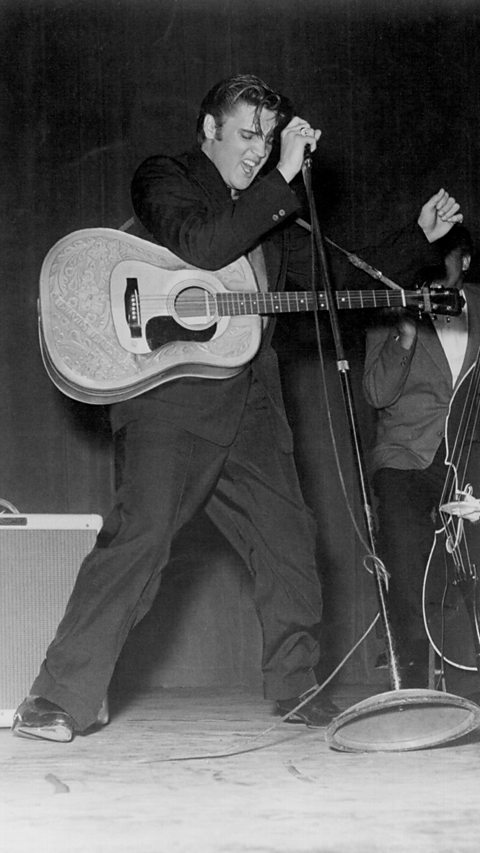Changes in culture and entertainment
Popular culture
Before the war, graduating from high school or college was uncommon. After the war, this changed. With a booming economy, many children could now be supported financially by their parents, guardians or families and complete their education. The term āteenagerā became more common and young people had more free time and money than previous generations.
øé“Ē³¦°ģāµµār“Ē±ō±ō

In the 1950s, °ł“Ē³¦°ģāµµār“Ē±ō±ō music became very popular. White teenagers were increasingly buying rhythm and blues (R&B) music by African American artists.
- The music had a strong rhythm and was easy to dance to, which appealed to them.
- The DJ Alan Freed wanted to develop this new trend, so he began playing R&B records but labelled the music °ł“Ē³¦°ģāµµār“Ē±ō±ō to bridge the gap between white and black audiences.
- African American artists like Chuck Berry and Little Richard, and the Hispanic performer Ritchie Valens, now became more appealing to white audiences.
Building on this style of music, in 1956 Elvis Presley released his first hit song, Heartbreak Hotel. He became the most popular music artist in American history.
Television
By 1960, around 87 per cent of homes in America owned a television set. As the price of televisions fell, they became more affordable, and TV replaced radio as the key source of home entertainment and news. Popular shows such as the 1950s sitcoms I Love Lucy and Leave It to Beaver shaped American ideals of family life. Viewing television often helped break down regional differences as most Americans watched the same TV programmes. This contributed to a new national popular culture.
Films
The film industry saw television as a threat and so tried to make the movie-going experience different and more exciting.
- In contrast to watching a small black-and-white screen at home, when people went to the cinema, they saw films in colour and in a widescreen format.
- There were also gimmicks like 3D.
Film stars at the time were perceived as either glamorous, like Marilyn Monroe, or rebellious, like James Dean and Marlon Brando.